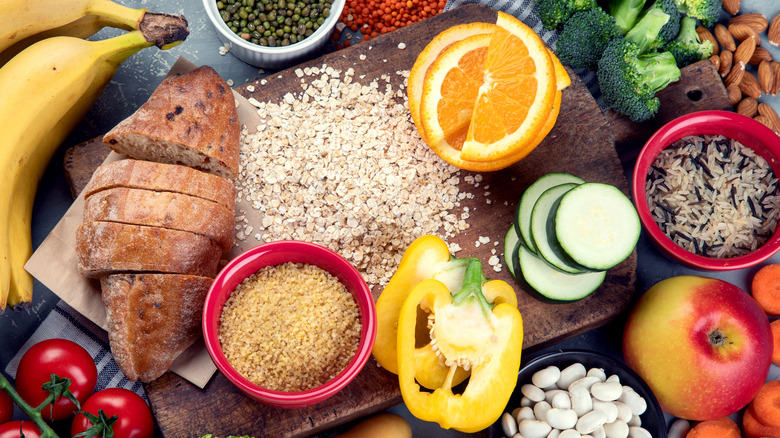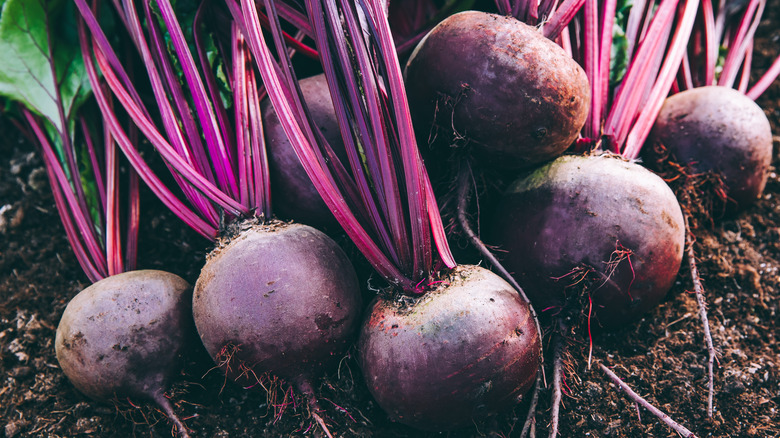A Nutritious Way To Add More Carbs To Your Diet
While we've been conditioned to believe low-carb diets are the norm, your body needs carbohydrates in order to function properly. Carbs are a type of macronutrient — along with protein and fat — that help fuel your brain and muscles, according to Food Network. They are also made up of fiber, starch, and sugar, which provide your body with the energy it needs (via Healthline). Carbohydrates can be either simple or complex, and understanding the difference can help you make healthier food choices.
Simple carbs are often found in foods with refined and added sugars (think sugary sodas, fruit juices, and prepackaged snacks), while fiber-rich fruits and vegetables, whole grains, and beans are excellent sources of complex carbs. So while you should limit your consumption of unhealthy or simple carbs and enjoy them in moderation, pile your plate with healthy or complex carbs regularly. Unprocessed whole grains, fruits, and veggies are healthy sources of carbohydrates that provide your body with essential vitamins, minerals, and fiber, as reported by Harvard.
If you're curious about healthy carbs, you may be surprised to learn that there's an unexpected vegetable that's packed with good-for-you carbs that you should be eating more of.
Nothing beats this root vegetable
For a non-starchy vegetable, beets are quite high in carbohydrates. One cup of raw beetroot (the bulb part of the vegetable, not the greens) contains 13 grams of carbs, according to Verywell Fit. You can reap the healthy carb benefits by drinking beet juice, too. An eight-ounce serving of beet juice is packed with nitrates and contains 24 grams of carbs, and drinking it may help lower blood pressure, reduce inflammation, and boost athletic performance, per Verywell Fit.
An excellent source of fiber — with 3.8 grams per cup — beets are also low-fat and nutrient-dense, as they contain vitamin C, potassium, and folate. The Mayo Clinic recommends women consume 21 to 25 grams of fiber daily, while men should try to get 30 to 38 grams per day, so incorporating beets into your diet can get you closer to reaching your daily fill. Fiber has a number of health benefits, as it can help control your blood sugar, maintain a healthy weight, and reduce your risk of chronic disease, as reported by the Cleveland Clinic.
Incorporate beets into your diet by slicing and roasting them, whipping up this spiralized beet salad, or featuring the root veggie in your main course with this roasted beet and herbs entrée.

